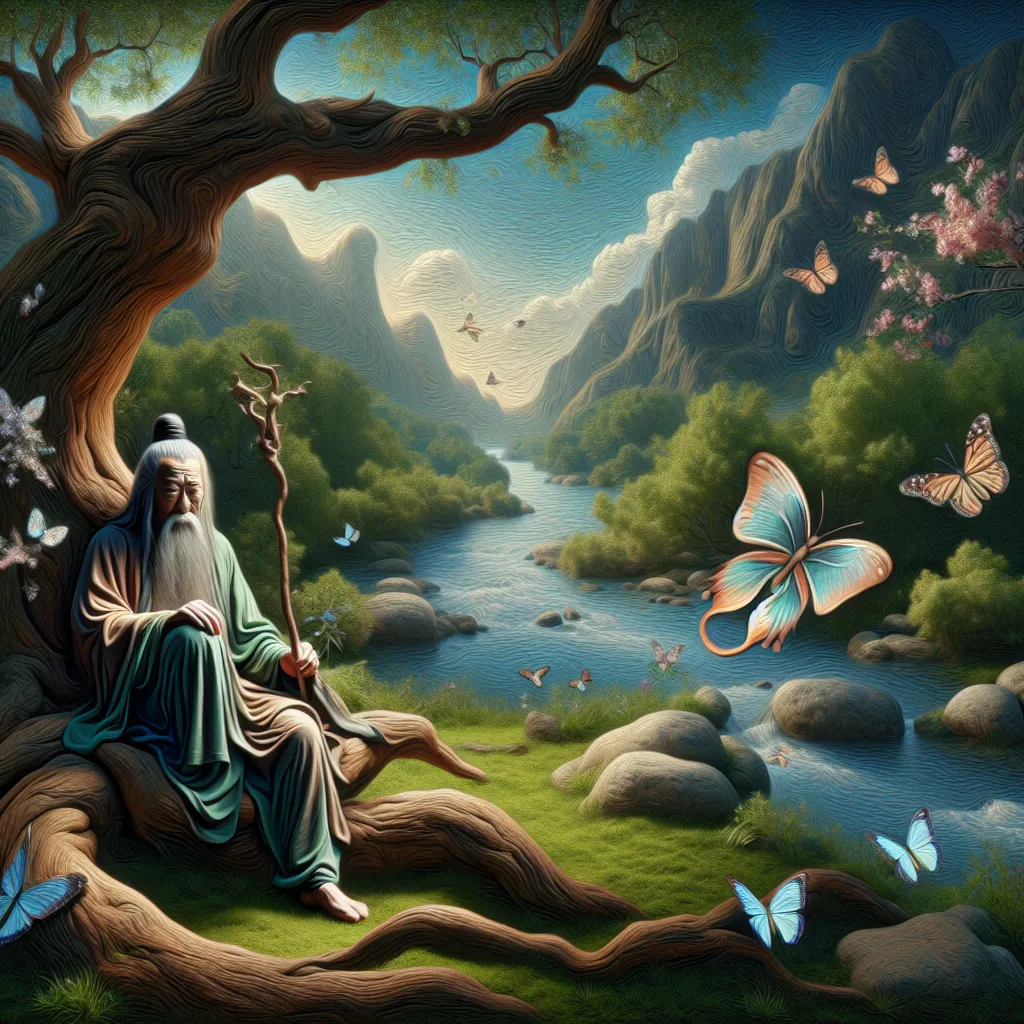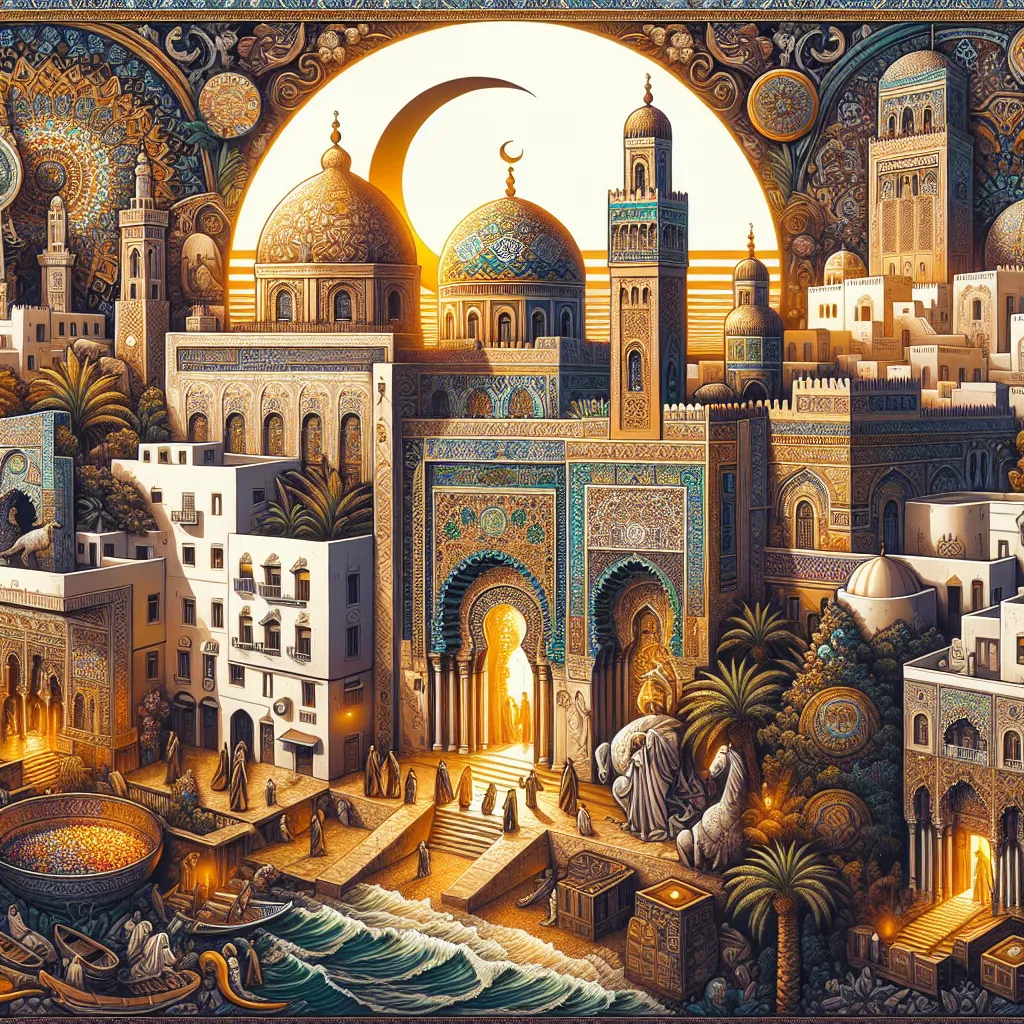Taoism is a rich philosophical and religious tradition that has shaped Chinese history and is gaining traction in the Western world. The Dao De Jing, attributed to the mythical Laozi, remains influential today as it was over 2,000 years ago. But, let’s shift our focus to the equally significant but less well-known figure, Zhuangzi (also known as Master Zhuang), and his work, which bears his name.
Zhuangzi is probably one of the most crucial texts in Taoism, right after the Dao De Jing. Named after its author, Zhuang Zhou or Master Zhuang, this book is a profound, engaging, and amusing piece of literature. Although his exact life details are fuzzy, Zhuangzi likely lived between the 4th and 3rd centuries BCE during China’s Warring States period, a time teeming with diverse philosophical ideas.
Master Zhuang is often perceived as a wise madman, challenging societal norms much like Socrates or even Yoda from Star Wars. There’s a story about him refusing a king’s offer to serve as a prime minister, fearing he would end up like an ox prepped for slaughter, preferring instead to be a “little orphaned piglet.” This anecdote might be fictional, but it perfectly fits his persona.
Zhuangzi’s book, traditionally considered a single volume, actually comprises 33 chapters split into “inner,” “outer,” and “miscellaneous” sections. Scholars believe Zhuangzi penned the first seven inner chapters, while the others were likely written by later Taoists inspired by his ideas.
The Zhuangzi text defies easy classification. It’s whimsical, incisive, humorous, and, at times, profound. One of its central themes is skepticism towards knowledge and certainty. Zhuangzi famously recounts a dream where he was a butterfly and, upon waking, ponders whether he is now a man dreaming he is himself. Another tale involves Zhuangzi and his friend Huizi debating whether Zhuangzi knows the happiness of fish from looking above the river.
Such stories challenge the rigid structures laid down by philosophers like Confucius and Mozi. For Zhuangzi, the Dao or “way” is an ineffable truth encompassing all things, yet beyond comprehension. Instead of strict morals and societal structures, Zhuangzi proposes living in harmony with the Dao, embracing change and spontaneity.
Zhuangzi’s writing often collapses distinctions between right and wrong, echoing a deep sense of unity in the Dao. All seemingly separate things, whether it’s you, me, or anything else, are just different expressions of the same underlying reality. This idea is vividly illustrated in a section where the sounds made by the wind blowing through holes symbolize the diversity of existence, yet it’s all just the wind.
Stories like the one where Zhuangzi bangs a drum after his wife’s death highlight his belief in accepting life’s natural cycle. Mourning excessively shows a lack of understanding of life’s constant transformation. Similarly, when Zhuangzi approaches his death, he embraces it, seeing himself as soon to be part of nature’s grand cycle again.
Zhuangzi’s playful approach extends to stories about mundane life. One such tale speaks of a useless, ugly tree that survives precisely because it’s undesirable, contrasting with “useful” trees that are cut down for their value. It teaches that not striving to be valuable or virtuous in conventional ways can be a form of attaining true virtue.
In essence, Zhuangzi asks us to see beyond surface distinctions, letting go of rigid perspectives and embracing the flow of the Dao. His work is a testament to this timeless philosophy, influencing countless scholars and schools of thought, from Neo-Confucians and later Taoists to Zen Buddhists.
Even today, Zhuangzi’s text inspires and confounds readers worldwide. It’s a cornerstone of Taoist philosophy and a gem in the treasure chest of global intellectual history. If you’re delving into Chinese philosophy or simply love engaging, thought-provoking writing, the Zhuangzi is a must-read. The enduring wisdom of this enigmatic, playful sage continues to resonate, a true testament to the profound impact of his work.






